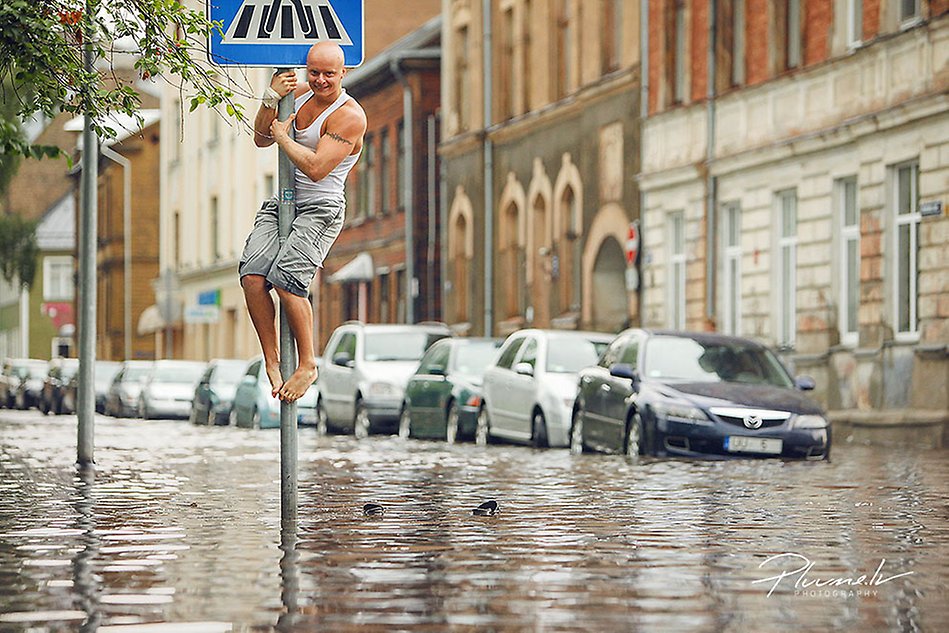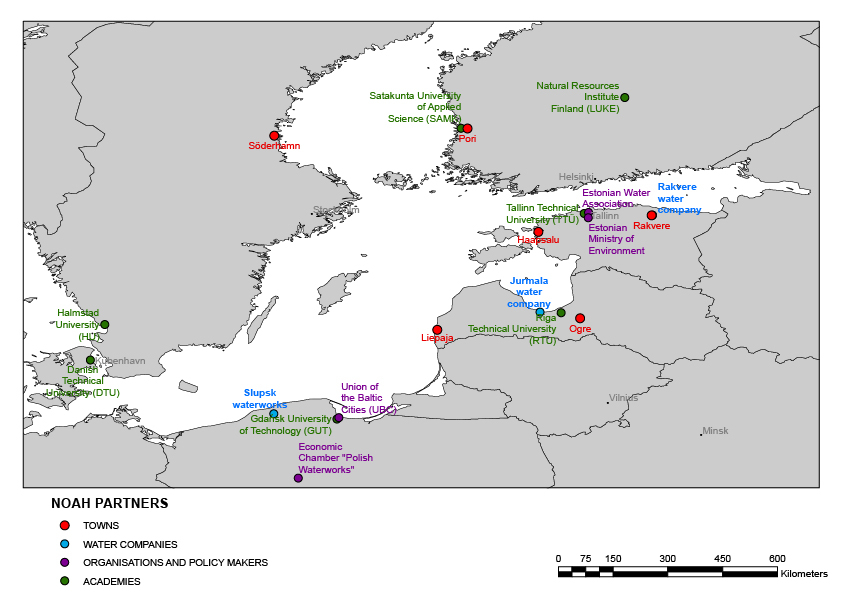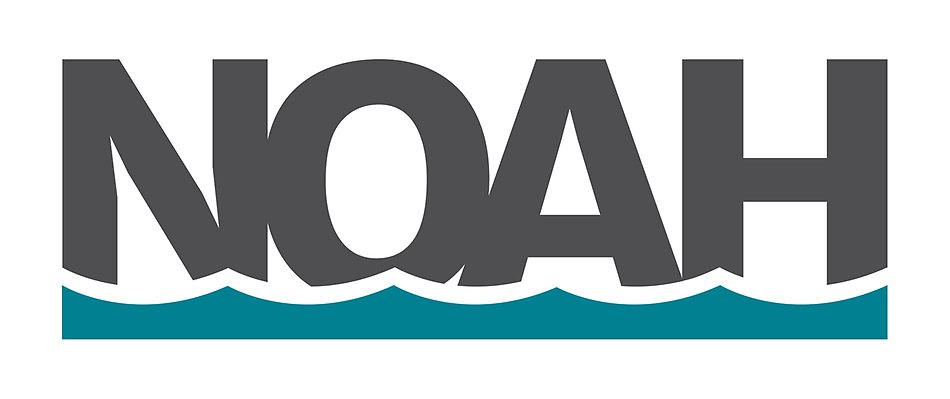NOAH
Climate change brings along intense rainfalls and storms in the Baltic Sea region. Urban drainage systems are not capable to handle this, and therefore floods are becoming more common in the densely populated areas.

Floods causing inflows of pollutants into the Baltic Sea
Floods rise the risk of flushing untreated wastewater from urban drainage systems into the nature. This is harmful to people and environment due to the excessive amount of nutrients, hazardous substances and pathogenic microbes in wastewater.
Holistic planning and smart drainage systems
Urban areas can be prepared for floods by improved planning and self-adaptive drainage operations. NOAH project has brought together nine towns and water utilities, seven academic and research institutions and two umbrella organisations from six countries around the Baltic Sea to join their forces.

NOAH’s approach is to create a concept for holistic planning and implement smart drainage systems in real urban environments. Holistic planning combines stormwater management with spatial planning. This is followed by development of smart drainage systems to make the existing facilities resilient to the impacts of climate change.
Healthier and cleaner Baltic Sea
The NOAH concept will be easily scalable to any urban area around the Baltic Sea. Implementation of the concept could cut up to half of the inflow of pollutants into the Baltic Sea. The activities will be anchored into daily practices of towns and water utilities, leading to healthier and cleaner Baltic Sea!
About NOAH
Researchers
The project runs for 2.5 years, during 2019–2021.



